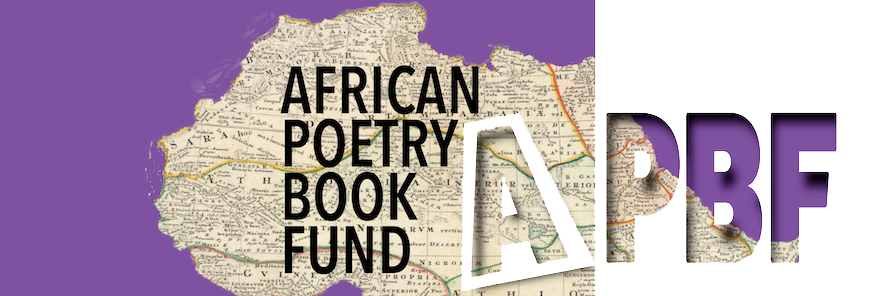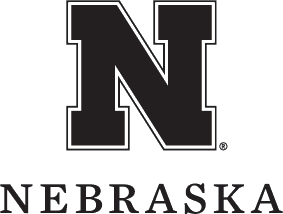APBF African Poetry Library Initiative: Details and FAQs

Mission
The African Poetry Library Initiative has established small, user-friendly poetry reading libraries on the African continent to support poets. This initiative, guided by APBF and the University of Nebraska-Lincoln Libraries, is realized through a collaboration between US and UK publishers of poetry, libraries and literary journals and African arts organizations, poets, libraries, and volunteers.
Each library is staffed by library staff or volunteers in Africa who are poets or who are themselves supporters of poetry. The first five reading libraries, founded in 2014, are located in Banjul, the Gambia; Accra, Ghana; Nairobi, Kenya; Gaborone, Botswana; and Kampala, Uganda.
Objectives
1. Establish accessible and user-friendly small poetry libraries in African countries, managed and organized by local volunteers.
2. Provide a small start-up collection of contemporary poetry books and journals for each library for an initial period of three years. (Continued donations dependent on local center usage)
3. Help each library become self-sustaining by providing continued support through UNL Libraries and APBF and helping the libraries build relationships with the donor journal publishers.
How We Work
The African Poetry Book Fund’s Responsibilities
1. Each year, the APBF receives books and journals donated from the “review copies” stacks of partnering literary journals (including our sister organization, Prairie Schooner), and by partnering poetry publishers in the US and the UK, as well as literary arts organizations, and individual donors. Coordinated by the Managing Editor, APBF volunteers sort and catalogue the books (using Library Thing) and package them for the libraries. APBF ships sets of books to each of the libraries in Africa to fill the shelves and supply the library’s holdings.
2. The African Poetry Libraries Initiative Specialist at UNL Libraries, a professional librarian, serves as a technical advisor and librarian coordinator of this outreach project, advising the individuals in Africa on how to establish the library. She works closely with the library contacts in Africa responsible for establishing each library. She also advises the APBF on the shipping and distribution of the books and journals to these centers.
3. The UNL Librarian advises on the cataloging of the books in the US prior to shipping and includes instructions and tips on how to manage the collections, including publicity material and suggestions.
4. APBF and UNL Librarian will be in contact with the library contact persons throughout the year, advising and helping as needed.
5. APBF will promote and publicize the project through its worldwide network of partners and contacts and will assist the local libraries in generating interest and support for the poetry libraries.
6. The APBF will assess the progress being made by each library and serve as a constant resource for the work of the library, even as it expands the program to other regions.
Who We Work With
Interested in contributing books from your catalogue, personal collection, or stack of review copies? Here’s what you need to know.
We accept donations directly from the following:
• Other journals and individual reviewers who have towering stacks of review copies
• Publishers who wish to earmark 5-8 copies of their annual poetry titles for donation to our project
• Administrators of book contests who wind up with single or multiple copies of a large number of books submitted annually to the contest
• Individuals who are downsizing their own personal poetry libraries—often poets who are moving or retiring from academia and cleaning out their offices (We are most interested in receiving contemporary poetry collections published within the last five or ten years. We know much great poetry exists outside that window, but the goal is to share contemporary voices from around the world with international poets based in Africa.)
• Journals or literary magazines who wish to send multiple copies of their issues to our offices as complimentary subscriptions, which we will include in the annual mailings (Multigenre journals and magazines are welcome as long as they include and accept submissions in poetry; including journals and magazines in our library holdings helps international poets get a better idea of where their own work may fit within the global conversation and where they might like to submit.)
Please note we cannot include ARCs or galleys or other unfinished versions, only finalized review or complimentary copies. We ask that, if possible, donors cover the cost of sending their donated books to our office, and we’ll cover the cost of passing them on to the libraries in Africa.
If you’re a publisher, contest administrator, journal, reviewer, or someone in the midst of a library downsize and you’re interested in donating to the libraries project, please get in touch with our Managing Editor at africanpoetrybf@unl.edu.
Interested in a local library in your community? Here’s what you need to know.
Requirements for Setting Up Local Libraries
The APBF has established libraries in five cities on the African continent so far, with more in planning. The following criteria have been used:
1. Identification of an individual willing to spearhead the establishment of the library in the country in question and willing to either staff the library themselves or find volunteers to do so.
2. A venue capable of shelving up to 1500 titles, and with space to allow for reading.
3. A venue that is open, secure, and accessible to everyone interested in using the facility and accessing the books and journals.
4. A core of individuals and organizations on the ground willing and capable of making the library sustainable for the long-term.
Local Poetry Library Responsibilities
• The libraries will be designed as Reading Rooms and Resource Centers where poets and poetry lovers can have access to contemporary poetry and to information about publishing poetry.
• The libraries will ideally be located in a dedicated space in existing public libraries, cultural centers, writers centers or other arts centers that have a proven history of accessibility to all.
• Volunteers who are poets or who are themselves supporters of poetry in the various countries will be encouraged and sought to volunteer or staff each library, if staffing is not already in place at the locations.
• The local contacts coordinate and pay for any cost incurred for the receipt of the books and will work with the facility to make sure that the library is accessible for all interested in using it. The library contact will inform APBF of any forms or labels that need to be completed for this to be expedited smoothly and cheaply.
• The local contact will also work hard to get word out to writers in the country about the library and its hours.
• The local contact will keep in contact with APBF and UNL Librarians and use them for support and advice in all issues concerning the poetry collection.
• The local contact will oversee the growth and development of the library and determine directions they would like it to take within the confines on the APBF African Poetry Libraries mandate.
• The local contact will develop programing and publicity projects related to the library to increase the profile of the library and to increase usage.
• The local libraries will develop a network of support, contacts and funding (where necessary) for the growth of these libraries in keeping with the needs of the local poets and lovers of poetry.




